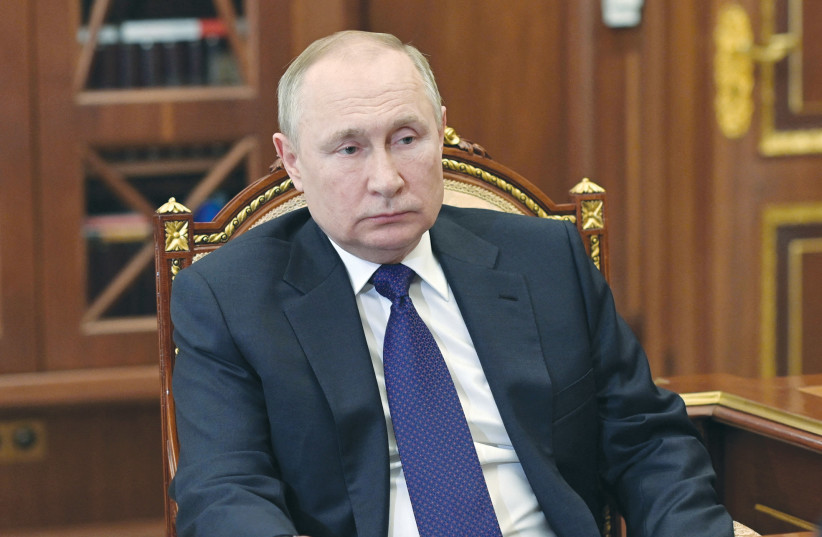“Cotton is king!” declared Senator James Henry Hammond of South Carolina as he explained to the Senate why no one would dare go to war with the American South.
“We could bring the whole world to our feet,” he boasted, “without firing a gun” and “without drawing a sword,” for “the South is perfectly competent to go on one, two, or three years without planting a seed of cotton.”
It was March 1858, a mere two years before Hammond’s thesis was put to the test and fell apart.
Southern cotton’s path to the outer world sure was blocked, as Northern vessels laid siege to Confederate ports. The markets raged – cotton prices soared from 10 cents per pound in 1860 to $1.89 in 1864 – but the blocked supply gave rise to new producers, most notably Egypt, which resupplied global demand, and thus undid Hammond’s plot.
It was the first encounter between modern war and modern industry, and the first appearnce of the industrial blackmail whose dynamics are now at play in the Ukraine war, including one aspect that directly affects the Jewish state.

LIKE THE American South, whose cotton was crucial for the industries of England, France and the American North, Vladimir Putin’s attack on Ukraine relied on his knowledge that Europe needs his gas. It was the same thinking as Hammond’s, and such is also its failure.
Germany’s decision to suspend the Nord Stream pipeline – a trans-Baltic project designed to multiply the flow of Russian gas to Germany – was clearly not in Putin’s cards. Even more fatefully, Putin rested the Russian economy on mining and farming, a carbon copy of the Confederacy’s economic deformity.
The South’s reliance on labor-intensive plantations and the cotton they produced was no match for the North’s economy, which relied on industry. Putin’s economic design, which failed to cultivate civilian manufacturing, is similarly vulnerable. That’s why Russia’s per capita product, $11,273, is less than two-thirds its size in other post-communist economies like Poland, Hungary and the Czech Republic.
Reliance on mining is economically futile in any event, but even more so when deployed as a military weapon.
That is what Senator Hammond learned in the 19th century, and that is what Saudi Arabia learned in the 20th century along with the rest of the oil-producing countries that deployed industrial blackmail as part of the Middle East conflict.
Like the unproduced Confederate cotton that ended up produced in Egypt, the overpricing of Arab oil resulted in new mining elsewhere, from the North Sea to Mexico, all of which ultimately expanded supply, reduced prices, and defeated the strategy of industrial blackmail.
Having said this, these happy aftermaths take time to mature, and before that the blackmailers indeed wreak havoc, and the current conflict is no exception.
THE UKRAINE war’s impact on the markets has been harsh, and is prone to become even harsher if the military dynamics produce a stalemate.
In the war’s first days, oil prices climbed 15%, breaking the $100-per barrel barrier for the first time since 2014, reflecting Russia’s heavy presence in this market.
Unlike the Middle Eastern wars, what now pressures the markets is not a producer’s embargo, but customers’ sanctions. Moreover, the current mayhem is not limited to the energy markets, as both sides of this conflict are major producers of other commodities, most notably grain.
Wheat prices thus soared 30% since last month, reflecting fears that sanctions will halt Russian exports while Ukraine’s exports will be disrupted by fighting across its wheat fields. Dozens of other commodities, especially heavy metals, are abundant on both sides of the war. The potential disruption to the global economy, already beset by the pandemic’s disruption of supply chains, is immense.
It follows that the Western powers’ most urgent duty, besides seeking an end to the violence, is to cultivate alternatives to Russian commodities, the way the West did back when it faced the 1970s’ oil embargo. This kind of anti-blackmail policy has yet to be developed, and one place where it is glaringly absent is the eastern Mediterranean.
Israel’s newly found gas has been not only a financial blessing, but also, and even more crucially, an improbable peace accelerator.
A deal signed in 2015 to supply $1.2 billion worth of gas to Egypt expanded in 2019 to a grand deal for the supply of $15 billion worth of gas over 15 years. A similar deal was signed with Jordan in 2016, for the sale of $10 billion worth of gas over 10 years.
With Israeli gas running to Arab neighbors through pipelines stretched under the Jezreel Valley and the Mediterranean, it was economically natural to lead it to Europe as well. That is why Israel, Greece and Cyprus agreed in 2020 to build a 2,000-km. pipeline to Italy, which later joined the project through the Italian-Greek energy consortium IGI Poseidon.
This pipeline diplomacy has been so effective that it is now defrosting long-strained relations between Israel and Turkey.
However, as this newspaper reported in January, the US decided to remove its support for the East Med project, citing environmental concerns as Washington tries to decarbonize the world.
This attitude would be plausible in a peaceful world. But the world is not peaceful, and Washington’s most urgent duty is to confront the warmongers that obstruct international trade. That is what Italian Prime Minister Mario Draghi meant when he confessed to his parliament last week that “it was imprudent not to have diversified more our sources of energy.”
Now, as Washington scrambles to confront Russian aggression, it should announce its support for the Israeli pipeline that will give Europe more non-Russian gas. Otherwise, the US would be serving the very industrial bullying that Vladimir Putin perfected, and Senator Hammond pioneered.
The writer’s bestselling Mitzad Ha’ivelet Ha’yehudi (The Jewish March of Folly, Yediot Sefarim, 2019), is a revisionist history of the Jewish people’s leadership from antiquity to modernity.
